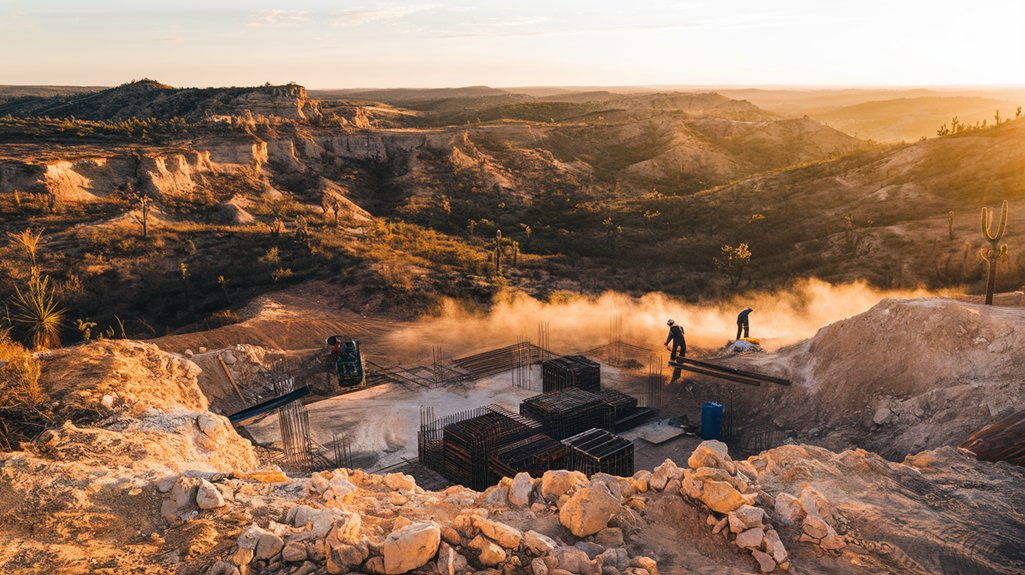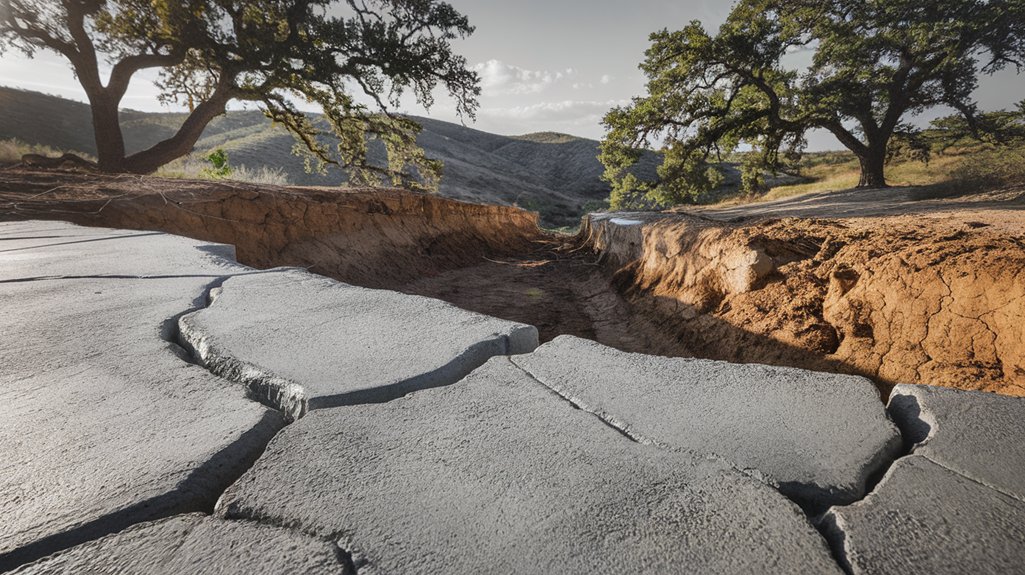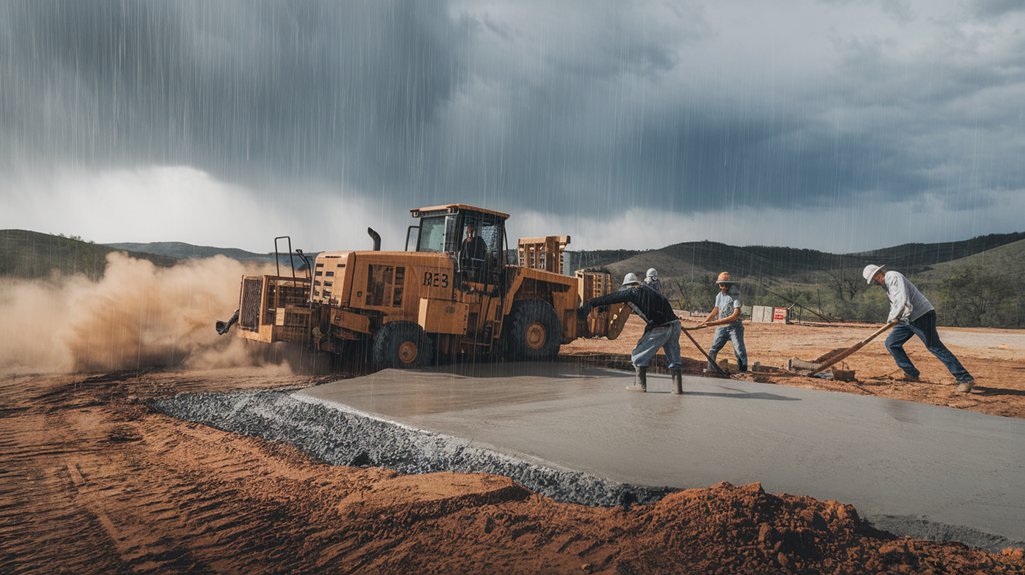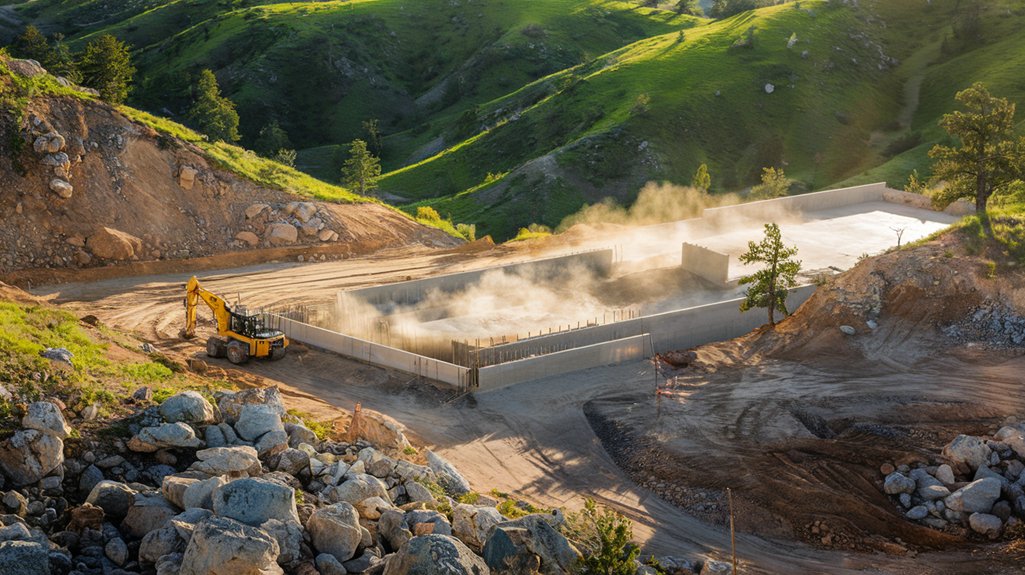Concrete Construction Challenges in Boerne and the Texas Hill Country
Taking on a concrete construction in Boerne or anywhere in the Texas Hill Country presents a distinct set of challenges. From expansive clay soils to rocky terrain and unpredictable weather, each project requires smart planning and specialized techniques. Whether you’re building in San Antonio, Canyon Lake, or the heart of Boerne, understanding the local environment is essential to building long-lasting, high-performance concrete structures.
Key Takeaways
- Karst geology and variable terrain demand specialized planning and construction techniques.
- Expansive clay soils require pre-construction testing and stabilization methods to prevent future foundation damage.
- Weather unpredictability impacts concrete curing and project timelines—planning ahead is vital.
- Rocky terrain makes excavation more difficult and may require specialized equipment and soil reinforcement.
- Use of high-quality materials and reinforcement methods is essential for long-term durability.
Understanding the Unique Geology of the Texas Hill Country

The Texas Hill Country is known for its stunning landscapes—but beneath the surface lies complex geology. Karst formations, consisting of limestone, caves, and sinkholes, present unstable ground conditions. These unpredictable soil layers impact foundation design, slab performance, and long-term structural integrity.
Before pouring concrete, it’s critical to conduct a geological assessment to determine how soil and rock interact with moisture. This ensures a stable foundation and reduces the risk of settling or cracking later on.
The Impact of Expansive Clay Soils on Concrete Projects

Expansive clay soil is a major concern for concrete construction in Boerne. It expands when wet and contracts when dry—causing pressure that leads to slab cracks, wall separation, and foundation shifts. Left unaddressed, it can compromise structural integrity.
Mitigate this risk by incorporating soil stabilization, deep footings, or post-tension slabs depending on the results of your site analysis. Partnering with professionals like Valor Concrete ensures proper site preparation based on local conditions.
Weather Variability and Its Effects on Construction Timelines

From heavy spring rains to intense summer heat, Boerne’s weather demands proactive planning. Weather changes can affect concrete curing, delay pours, or even reduce material strength.
Monitor local forecasts and adjust schedules accordingly. Concrete additives and protective curing blankets can help when pouring during extreme temperatures. Accounting for weather reduces delays and improves finish quality.
Site Preparation Challenges in Rocky Terrain
Excavation in rocky terrain is labor-intensive and time-consuming. You may need rock hammers, hydraulic splitters, or blast techniques to prepare the site safely and efficiently. In areas with shallow bedrock, site grading and trenching become even more challenging.
Soil reinforcement techniques—such as geogrid systems or chemical stabilization—can increase bearing capacity and allow for proper slab installation. Identifying the best approach requires expert assessment and a solid understanding of Hill Country subsurface conditions.
Strategies for Ensuring Durable Concrete Structures
Building durable concrete structures in the Hill Country means using a blend of technology, quality materials, and local knowledge:
- Use reinforced steel or fiber mesh to improve tensile strength.
- Choose concrete mixes designed for moisture and temperature fluctuations.
- Apply sealants to prevent water infiltration and freeze-thaw damage.
- Inspect post-construction and apply maintenance strategies like resealing or leveling.
Best Practices for Managing Project Budgets in a Challenging Environment
In regions like Boerne, surprises during excavation or delays due to weather can impact your budget. Start with a flexible, realistic cost estimate.
Frequent check-ins with your build team and transparent communication reduce the risk of budget overruns. Allocating a contingency fund (10–15%) can safeguard your timeline and resources when the unexpected happens.
Frequently Asked Questions
How Do Local Regulations Affect Concrete Construction Projects?
Local building codes and permitting processes affect what materials can be used and how foundations are installed. Always confirm compliance before beginning your project.
What Types of Concrete Mix Are Best for the Hill Country?
Use mixes with low water-to-cement ratios and additives for temperature resistance and durability. Local ready-mix providers can help tailor blends for Boerne’s soil and climate.
How Can I Maintain Concrete Structures After Construction?
Perform regular inspections, clean surfaces, and reseal concrete every 2–3 years. Look out for cracks or drainage issues and address them promptly.
Are There Contractors Who Specialize in Hill Country Builds?
Yes. Local experience is key. Contractors like Valor Concrete have the expertise and tools necessary for working in the unique conditions of the Texas Hill Country.
Overcoming the challenges of concrete construction in Boerne requires a deep understanding of local geology, weather, and soil conditions. From expansive clay to rocky terrain, each obstacle can be addressed with the right preparation, equipment, and professional expertise.
Looking to build in the Texas Hill Country with confidence? Contact Valor Concrete for tailored solutions built to thrive in Boerne’s challenging environment. Serving San Antonio, Canyon Lake, Boerne, and beyond, we’re committed to excellence in every pour.

